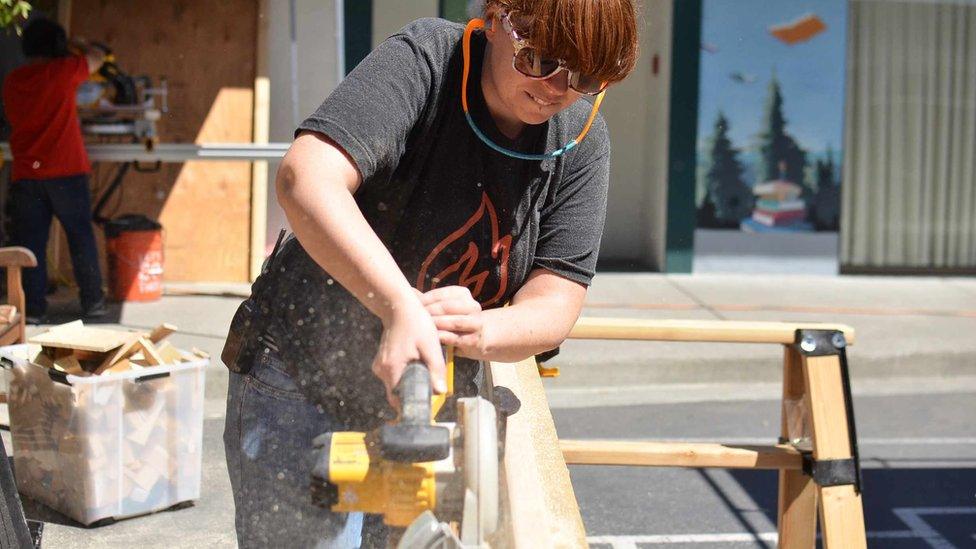Oxfordshire research centre gets £519m government investment
- Published
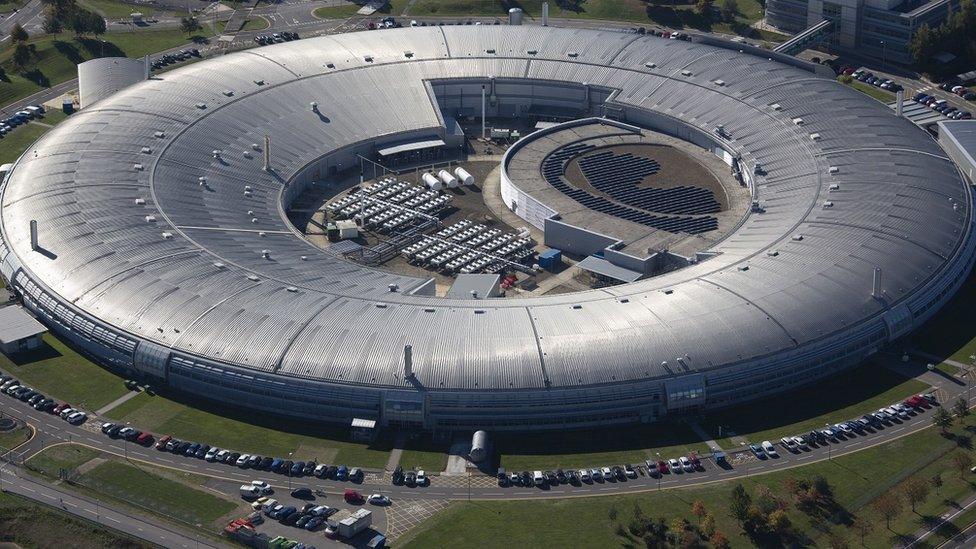
Diamond Light Source is home to the synchrotron, which speeds electrons up to near the speed of light
A ground-breaking science facility will be upgraded and expanded thanks to a £519m government investment, it has been announced.
Diamond Light Source, in Harwell, Oxfordshire, has studied advanced treatments of HIV, cancer and the Covid-19 vaccine.
It is also home to the synchrotron, a tool which speeds electrons up to near the speed of light to produce intense beams of light that can probe matter.
The upgrade will take seven years.
It will involve construction of a new, even brighter synchrotron machine, which is essentially a giant microscope, producing light 10 billion times brighter than the sun.
The light is directed via beamlines, into laboratories where research takes place in virtually all fields of science from health to energy.
Secretary of State for Science, Innovation and Technology Michelle Donelan visited Diamond, based at the Science and Technology Facilities Council (STFC) Rutherford Appleton Laboratory, to announce the multi-million-pound funding provided through UKRI (STFC), and the Wellcome Trust.
Speaking at the centre, she said: "This is a worthy investment.
"This technology means that scientists can better examine proteins and molecules and have a better understanding of their structure so that we can push forward advancements in drug technology and vaccines."
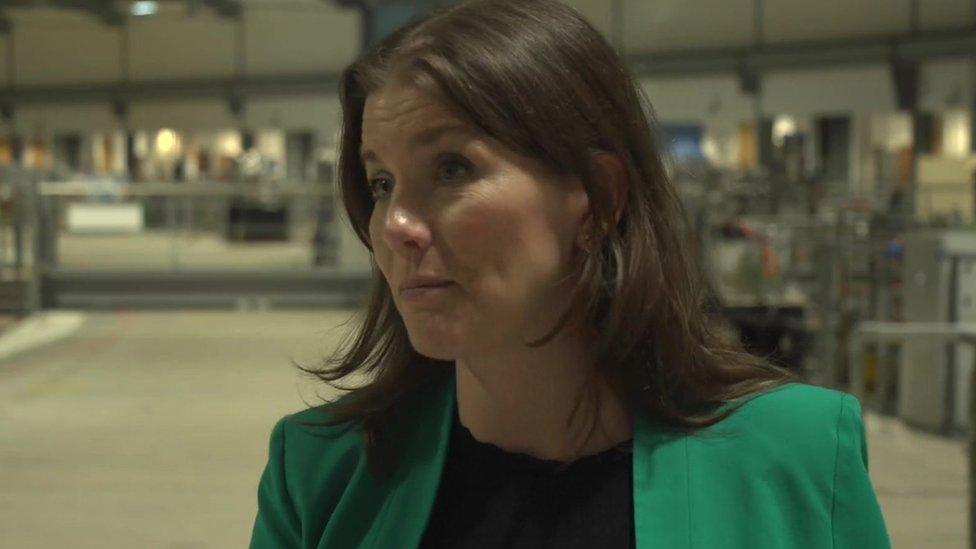
Ms Donelan spoke to the BBC at the Oxfordshire facility
Technology moves fast and the synchrotron is now 16 years old.
"There's nothing wrong with the present synchrotron," said Adrian Mancuso, director of physical sciences at Diamond Light.
"We're doing fantastic science with it every day - but the opportunity to upgrade to a fourth generation synchrotron is enormous.
"We can go from looking at static things to looking at how things move and change. This is just a super exciting opportunity."
Prof Mark Thomson, STFC executive, said the investment would keep the "world-leading facility right at the edge of science for the next decade or more".
He added: "That is part of a broader programme of major investment into the Harwell campus - both from the public sector and the private sector."

Follow BBC South on Facebook, external, Twitter, external, or Instagram, external. Send your story ideas to south.newsonline@bbc.co.uk, external.
Related topics
- Published9 March 2023
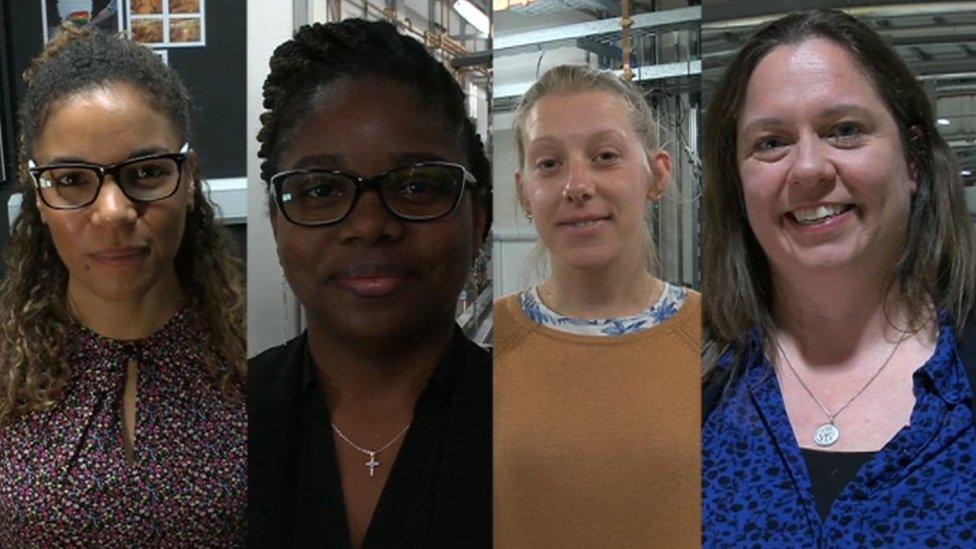
- Published5 March 2023

- Published11 October 2022
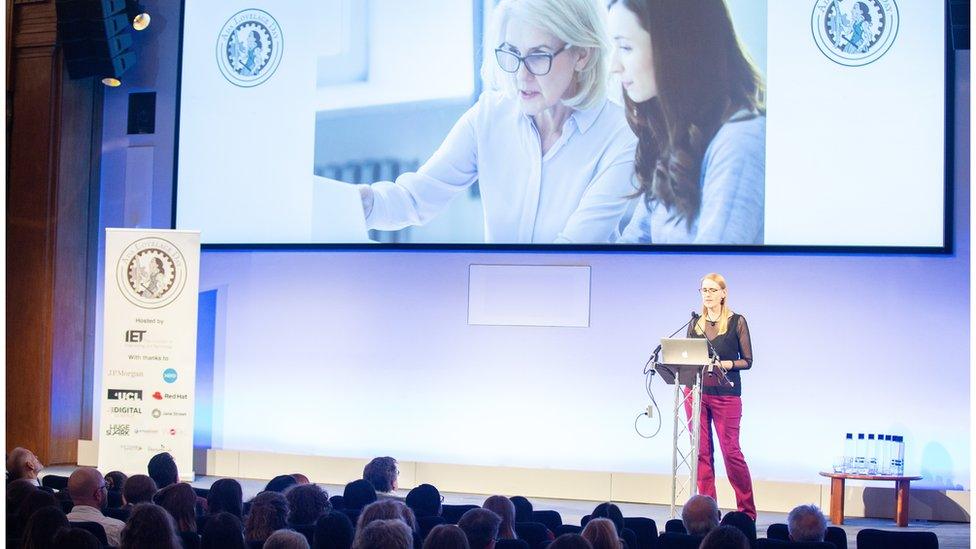
- Published5 March 2022
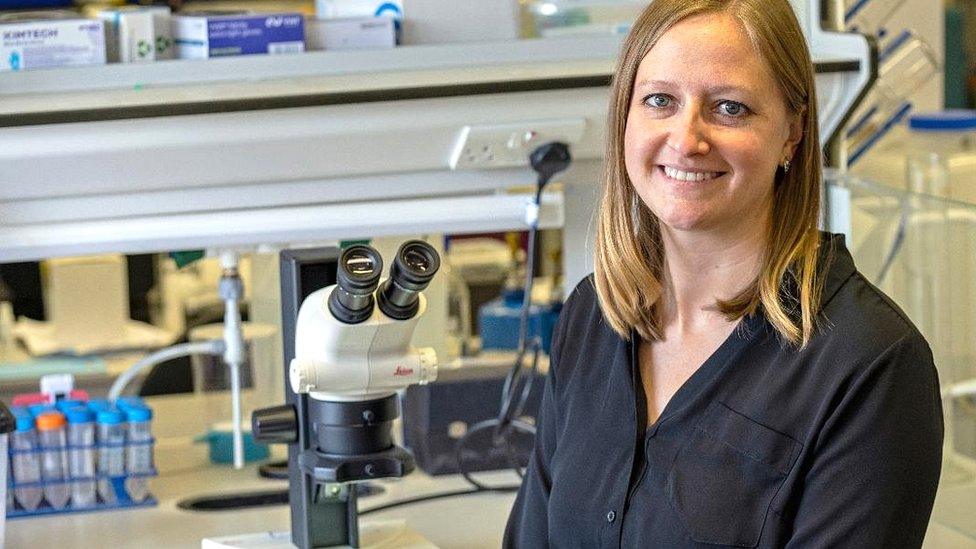
- Published7 January 2022
